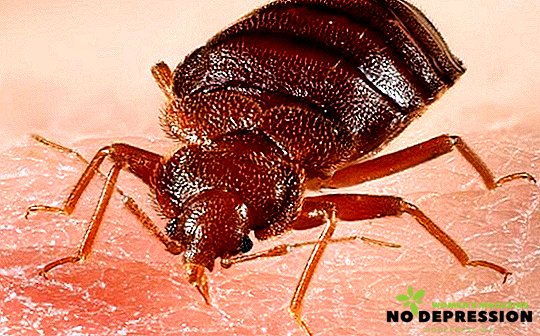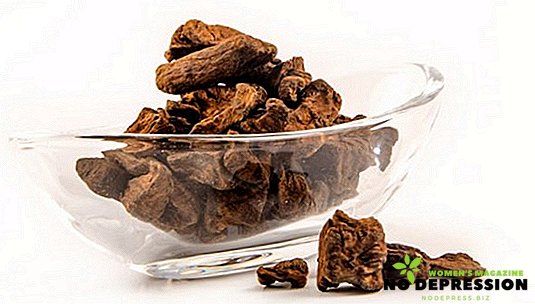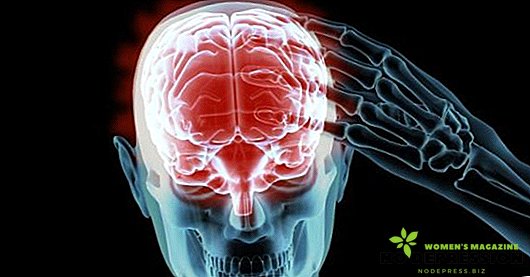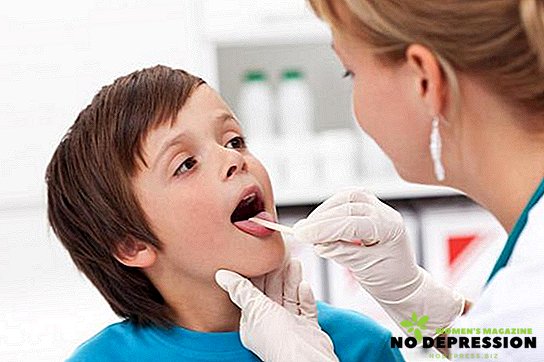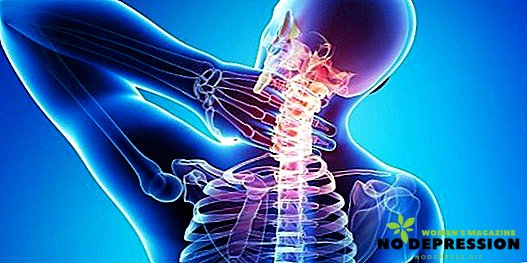Manic-depressive psychosis is a serious mental illness that occurs with the change of the two main phases of the disease - manic and depressive, and depending on the form, it can manifest as very bright and almost imperceptible. That is why it is so important to listen to yourself in order to detect symptoms in time.
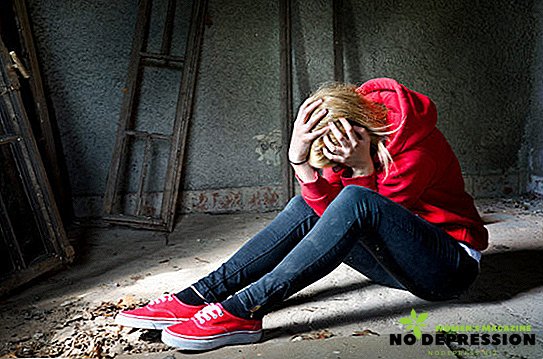
General information about the disease
As a rule, the patient may experience one of the phases of the disease or an intermission period in which the patient can lead a normal life. Another well-known name for this disease is bipolar affective disorder, phases are psychotic episodes. A softened form with a minimum number of symptoms is called cyclotime.
The name depends on the seasonality, exacerbations occur mainly in the fall and spring. The disease can occur at any age, starting from adolescence, but finally formed closer to 30 years.
Statistics show that the disease is most common in women, and the total prevalence among the population is 7 patients per 1000 people.
Moreover, the first manifestations of pathology are poorly expressed, they can often be confused with adolescent problems.
Main reasons
This disease is little studied, because psychiatrists can not clearly explain the causes of the pathology.
It is believed that one of the reasons is heredity, since the disease can be transmitted from mother to child. Up to a certain point, the presence of manic-depressive psychosis may not manifest itself, however, after childbirth, stress, with a long stay in difficult conditions may suddenly appear.
Another reason - the peculiarities of the nervous system of each individual. If we consider the mechanism of the development of pathology, but manic-depressive psychosis may be caused by problems in the transmission of nerve impulses.

Such violations usually occur due to changes in the activity of serotonin and other chemicals that are responsible for the transfer of information.
Most reasons are divided into two types:
- physiological;
- psychosocial.
The first include disorders in thyroid function, hormonal imbalances, brain tumors, head injuries, addiction to narcotic substances.
Psycho-emotional problems lie in the need to protect against stress. In this case, a person can go to work with his head, is given to deliberate fun, as a result of which the body experiences severe fatigue, depression begins.
Classification
According to doctors, the most common among patients is unipolar disorder - depressive, in which the patient plunges into deep despondency.
But there is also bipolar manic-depressive psychosis, which is divided into the following types:
- classical, in this case, the patient has pronounced symptoms;
- the second type is rather weak, which complicates diagnosis, and because of the short phases of the disease, this pathology is often confused with depression and melancholia.
Symptoms in this pathology
In medicine, all the symptoms that relate to bipolar disorder are grouped into one group called sympathicotonic syndrome. Patients usually have increased anxiety and activity. They also:
- talkative;
- overconfident;
- have expressive facial expressions;
- gesticulating a lot;
- easily irritated and painfully react to criticism;
- prone to aggression;
- have dilated pupils.
 Such people usually sweat a little, and the skin on the face is prone to hyperemia. Patients may complain of tachycardia, heaviness in the stomach, insomnia, feeling hot.
Such people usually sweat a little, and the skin on the face is prone to hyperemia. Patients may complain of tachycardia, heaviness in the stomach, insomnia, feeling hot.
Also in this phase, patients are prone to risk, including gambling or even crimes, such as theft. They are characterized by unjustified optimism, which leads one to believe in luck and being chosen.
Due to this, patients can invest in dubious initiatives, give all the money to the casino or buy lotteries, because they are sure that they will win millions.
With the depressive form of the disease, the patient, on the contrary, becomes very apathetic, speaks quietly, is a little emotional, his movements are slowed down. Many during this period complain of a feeling of pressure in the chest, problems with breathing. In severe cases, patients lose their primary needs for food and drink. They tend to think about suicide and often show sophistication, trying to bring everything to the end.
How is the diagnosis
It is very difficult to diagnose such a disease, since many of its symptoms are similar to signs of other pathological mental states. Usually, to determine the diagnosis of a specialist conducts a survey of the patient, his relatives, which also reveal the possibility of hereditary susceptibility to this disease.
The patient also must pass a series of tests, the results of which will show his emotional state, help determine the presence of addictions, anxiety. Patients with this diagnosis can also be sent for MRI, X-rays - this will eliminate the presence of injuries, tumors, intoxication of the body.
And only after a precise definition of the clinical picture and diagnosis, the patient is prescribed treatment.

Treatment of manic-depressive psychosis
Bipolar disorder responds well to medical treatment, so you can not do without antidepressants and drugs that stabilize mood.
One of the most well-known remedies is lithium salt, which is contained in such preparations as Mikalit, Lithium carbonate, etc. However, if kidney and gastrointestinal disorders are impaired in people who are prone to hypotension, such drugs may be contraindicated.
In severe cases, tranquilizers, antiepileptic drugs, such as Carbamazepine, Finlepsin, Topiramate, may be prescribed in the treatment of such a disease. Experts report that in pathology, neuroleptics are effective, for example, Aminazin, Galapidol.
At such sessions, the specialist will help the patient to become aware of his condition, develop a strategy of behavior in case of an aggravation, strengthen the skills of controlling emotions. In some cases, the patient’s relatives are invited to classes, who will be taught to prevent the appearance of new attacks.

Prevention and prognosis
In order to avoid the appearance of new psychotic episodes, it is necessary to maintain a stable emotional background, to prevent stressful situations. In addition, it is desirable to continue taking medications prescribed by a doctor, strictly following the dosage.
However, many patients after the relief of symptoms of the acute phase forget about taking medication, which ultimately leads to a new round of the disease, which is often manifested in a more acute form. If you take the funds correctly, then the affective phase may not occur.
It is impossible to completely get rid of this disease, since the risk of the onset of a new phase will always remain. However, to prolong the remission stage, and for many years, it is possible, you should simply follow all medical recommendations.



